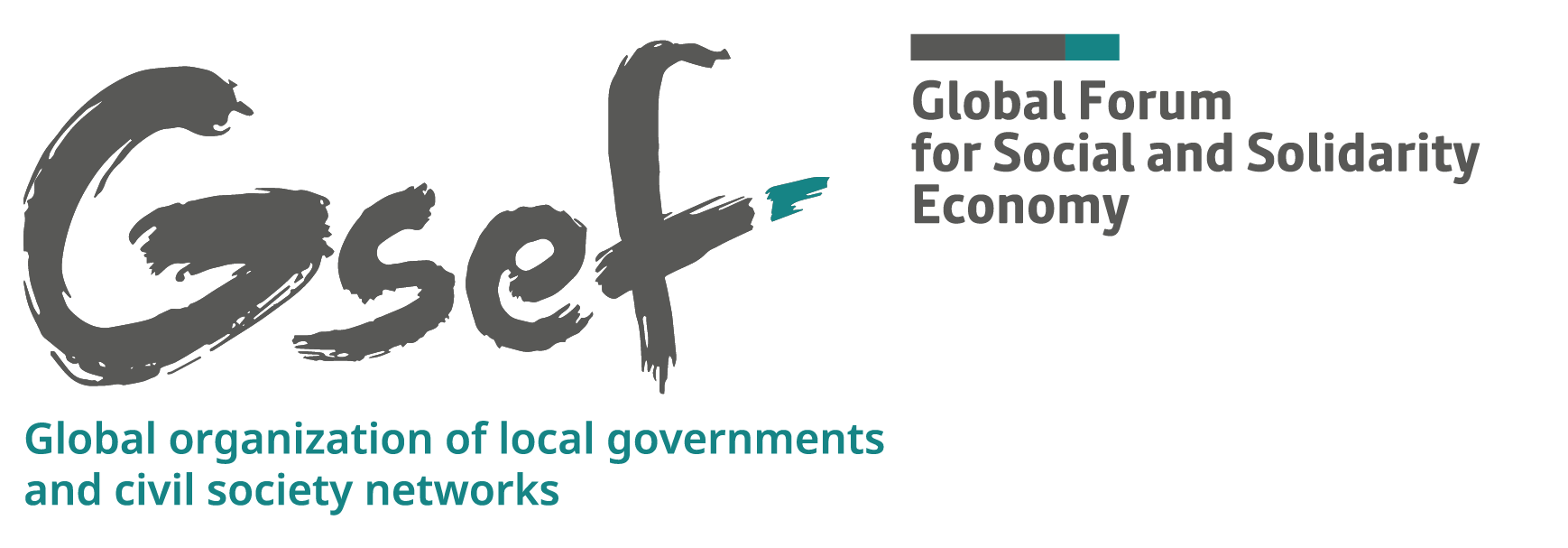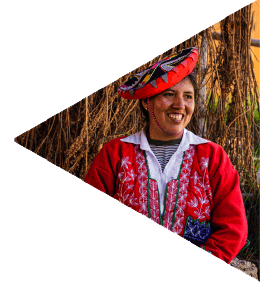


An international organisation ...
The GSEF (Global Forum for Social and Solidarity Economy) is an international organisation of local governments and civil society networks committed to promoting the Social and Solidarity Economy (SSE) as a means of achieving inclusive and sustainable local development.
Created in 2013, the GSEF differs from existing international SSE initiatives and networks. The emphasis on the role of local government clearly affirms their crucial role in the governance and resolution of the major challenges of the 21st century, from climate change to social cohesion and inequalities.
The GSEF is convinced that systemic changes begin at the local level, underpinned by a partnership between civil society and public and private stakeholders, with the aim of ramping up the SSE to set the standard for tomorrow’s economy, by integrating the collective management of common goods.
The GSEF promotes various forms of SSE, including social enterprises, cooperatives, foundations, mutual societies and self-help groups, which put people before profit.
In addition to its biennial SSE forum, which has become one of the largest international gatherings, the GSEF operates in five key areas:

Capacity building for local governments
(co-construction of SSE public policies)

Exchanges of experience and research

Publication and practices

Creation and support for local and national SSE networks

International advocacy for international recognition of the SSE
The GSEF has a significant capacity for convergence, through its many partnerships and closer collaborations, in addition to a capacity for action.
The GSEF cooperates with international networks, which are also members. This collective approach facilitates collaborative actions in line with priorities in order to promote the SSE and, with it, a change in development models.
Through its advocacy activities, the GSEF has made a major contribution to the international recognition of the SSE by the most multilateral institutions, building up momentum which culminated in 2022-2023 with the OECD Recommendation, the universal definition of the International Labour Conference (ILC), and the Resolution of 18 April 2023 adopted by the United Nations General Assembly.
… with strong local roots
In October 2021, the GSEF General Assembly selected Bordeaux as the host city for the headquarters of its Standing Secretariat, previously based in Seoul, South Korea.
The city’s bid was supported by four partner local authorities: the City of Bordeaux, Bordeaux Métropole, the Department of Gironde and the Nouvelle-Aquitaine Region, in association with the Nouvelle-Aquitaine Regional Chamber for the Social and Solidarity Economy (CRESS) representing stakeholders and stakeholder networks.
The GSEF is chaired by Pierre Hurmic, Mayor of Bordeaux (Vice-President of Bordeaux Métropole) and co-chaired by Stéphane Montuzet, President of CRESS Nouvelle-Aquitaine. Since the introduction of continental co-presidencies in 2021, the Nouvelle-Aquitaine Region has carried out this mandate for Europe (vice-presidency: Departmental Council of Gironde).
Facts and Figures
84 members from 37 countries on five continents, including 24 local governments,
7 local government networks, 23 civil society networks.
– 2023 figures –
Secretary General: Aude Saldana
One event: the Global SSE Forum
In 10 years, the GSEF has become a recognised global network, demonstrating its ability to mobilise a wide range of players from every continent. This is illustrated by the success of the last six GSEF Global Forums (Seoul, Montreal, Bilbao, Mexico and Dakar). The GSEF entrusts the organisation of this major event to a host city on a biennial basis. Bordeaux GSEF 2025 represents the seventh edition of the Global SSE Forum.